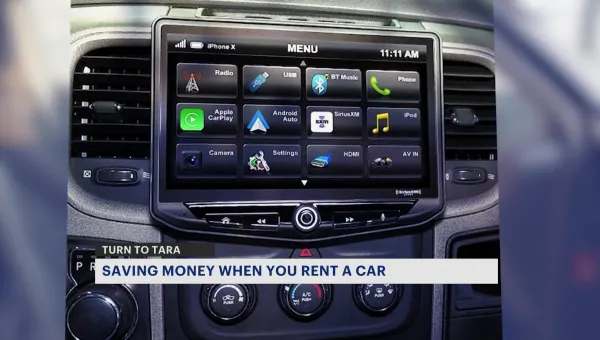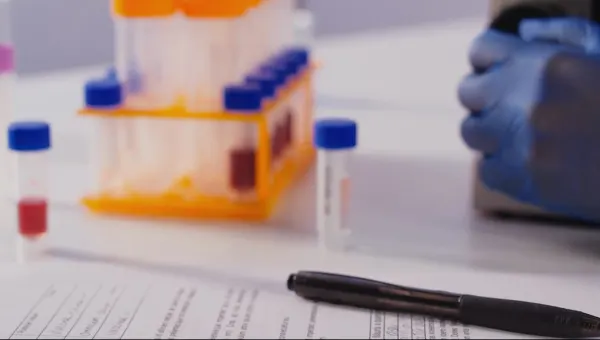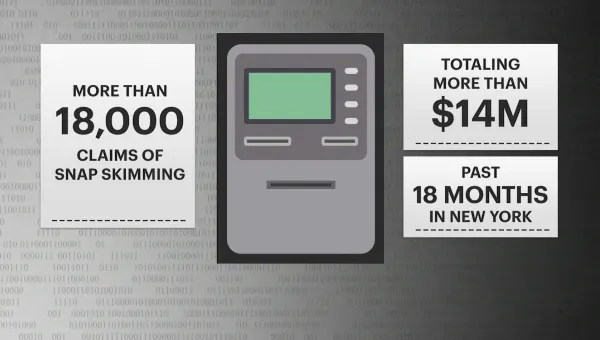Turn to Tara investigation reveals surge in cyberattacks targeting local hospitals
In 2022, a staggering 88 million Americans fell victim to medical data breaches, marking a 60% increase from the previous year.
Share:
More Stories
2:41

Kindness never goes out of style: Social media request helps provide prom dresses for kids with special needs
6ds ago2:19

Turn to Tara team looks at new domestic violence laws implemented across tri-state following NJ murder-suicide
8ds ago2:32

Turn to Tara: Total solar eclipse set to amaze North America!
36ds ago1:19

Soloviev Group hires key appointment at Freedom Plaza, site considered for downstate full-scale casino license
41ds ago1:24

Cannabis Contest: The Great Licensing Adventure - A Turn To Tara exclusive
48ds ago1:57

Turn to Tara: Best ways to flood-proof your home
50ds ago2:41

Kindness never goes out of style: Social media request helps provide prom dresses for kids with special needs
6ds ago2:19

Turn to Tara team looks at new domestic violence laws implemented across tri-state following NJ murder-suicide
8ds ago2:32

Turn to Tara: Total solar eclipse set to amaze North America!
36ds ago1:19

Soloviev Group hires key appointment at Freedom Plaza, site considered for downstate full-scale casino license
41ds ago1:24

Cannabis Contest: The Great Licensing Adventure - A Turn To Tara exclusive
48ds ago1:57

Turn to Tara: Best ways to flood-proof your home
50ds agoA recent Turn to Tara investigation uncovered a concerning trend of cyberattacks on local hospitals across the tri-state area, with incidents escalating over the past year.
Last fall, two New York hospitals were hit by cyberattacks, resulting in ambulances and patients being diverted to other facilities.
Similarly, a few weeks later, two hospitals in New Jersey experienced a similar fate, forcing patients to seek care elsewhere. To date, both cybercrimes remain unsolved, leaving the number of exposed private medical records unknown.
This alarming pattern extends beyond the tri-state area, as evidenced by Prospect Medical Holdings shutting down computer systems in hospitals across multiple states, including Connecticut, due to cyberattacks.
Federal data obtained by the Turn to Tara team reveals that in 2022, a staggering 88 million Americans fell victim to medical data breaches, marking a 60% increase from the previous year.
This equates to over 1,600 cyberattacks per week targeting healthcare organizations.
Cindy Carter, a Global Chief Information Security Officer with Check Point Software Technologies, sheds light on why hackers are drawn to medical records, emphasizing the wealth of personal information they contain, from dates of birth to social security numbers and insurance details. Because of the aging equipment found in most hospitals, Carter says the malware attacks don't even have to be that sophisticated. "They have a lot of legacy equipment. Legacy equipment that was, number one, never intended to be connected to an internet. And number two, have proprietary software on them, so that you can't really patch them for making sure that they're not vulnerable to cyberattack."
In response to these growing threats, legislation is under review in New York to mandate hospitals to enhance their cybersecurity practices and establish preventive measures. However, Carter advises individuals to proactively protect their privacy by asking hospitals about data storage and sharing practices, as well as scrutinizing the terms and conditions before downloading mobile apps from health care providers.
If you have been impacted by a hospital hack or wish to report an issue for investigation, reach out to Tara with the contact information provided or visit the Turn to Tara tab on News12.com.





